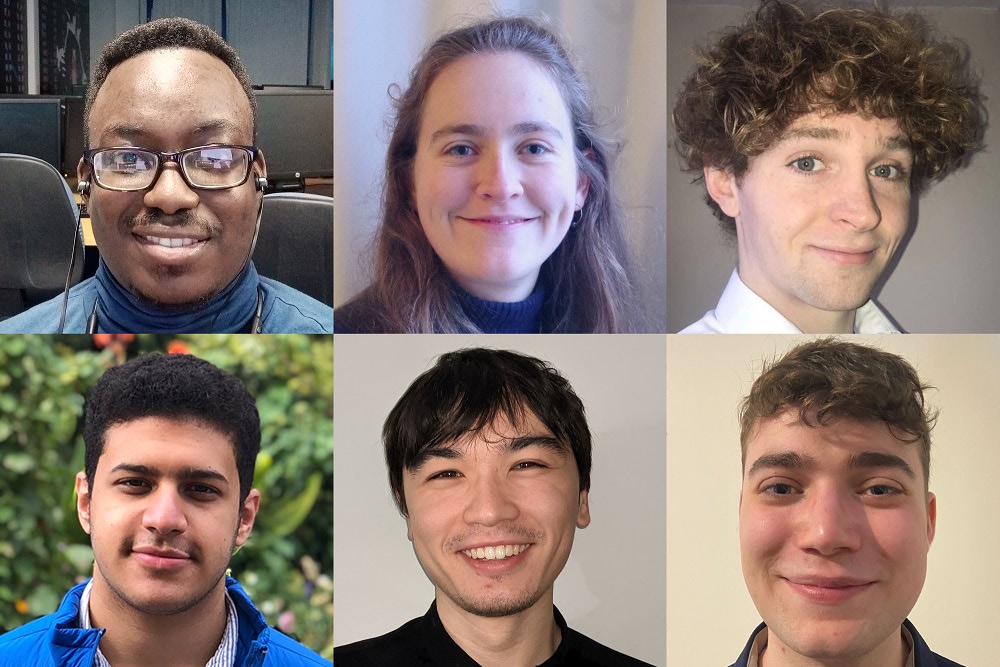Siemens unearths student talent with virtual competition to design sustainable connected transport system

@Siemens has unearthed the next generation of engineering, technology and business talent through an innovative, virtual competition which challenged students to design a smart, sustainable and interconnected transport system.
The two-day hackathon-style event, dubbed ‘Siemens SustainaCity Racer’, involved 60 promising students from 11 of its partner universities including: Birmingham, Sheffield, Nottingham, Manchester, Newcastle, Loughborough, Portsmouth, Sheffield Hallam, Aston, Bournemouth, and Southampton.
Participants were put into 10 hybrid, multidisciplinary teams and asked to work together virtually to design a new transport network for a fictional city region, combining a variety of transport types, and considering the demands of different environments.
An exercise in design thinking, the students were challenged to take into account engineering, digital and commercial elements.
The winning group included: Samuel Nield, (Mechanical Engineering at the University of Sheffield); Achiriga Jahmai William, (Internet of things with Cyber Security at Bournemouth University); Oliver Harris (Accounting and Finance at the University of Birmingham); Mahmoud Elhelaly (Electrical and Electronic Engineering at the University of Sheffield); Dermot Newton (Computer Science at the University of Nottingham); and Erin Medcalf (Materials Science and Mechanical Engineering at the University of Birmingham).
They scooped the prize of a £250 Amazon voucher and a trophy for each member, as well as an interview for internship and graduate roles at Siemens’ Mobility, Smart Infrastructure and Digital Industries businesses.
Key characteristics of the team’s proposals, which aimed to achieve zero emissions, included: smart vehicles powered by IoT technology; smart power sources for cars, trains, trams and boats such as electric, hydro, wind and solar power; smart charging stations for cars and buses; a Smart app for users to plan journeys, receive information and also make payments; a Smart transport framework to facilitate public transport access; and new Personal Electric Automobile (PEA) vehicles to provide transportation in the countryside.
Dermot Newton said: “The SustainaCity Racer challenge was such a fun, insightful and well organised event. It was exciting to meet students from a range of universities and courses while also being very interactive with the Siemens professionals. I believe winning the challenge proved just how hungry my whole team and I was at solving smart city challenges and working with Siemens for the future.”
Erin Medcalf said: “It was a really exciting opportunity to work as part of a multidisciplinary team and come up with creative solutions to global issues.”
Mahmoud Elhelaly said: “I really enjoyed working together with students from different backgrounds and experiences and I found it to be a good learning opportunity. The competition was intense but it was definitely worth it and I enjoyed the experience.”
Nicholas Dunne, Director of Technology for Siemens Mobility, said: “Siemens is shaping the global landscape with every kind of energy, transportation and technological infrastructure imaginable. In this digital world, where everything is becoming increasingly interconnected, we’re in constant need of visionary talent who can help us build on a new age of connected mobility that allows people to move more intelligently and sustainably.
“I am delighted that our Talent Acquisition team was able to come up with SustainaCity, a fantastic alternative to replace the annual Sir William Siemens Challenge which had to be cancelled due to Covid-19.
“The judges were hugely impressed with the creativity of all of the participants and how they responded to the additional challenge of working in a virtual and collaborative environment, and we hope the experience could be a defining moment in what could be a fascinating and rewarding career with Siemens.”
The runners-up group included: Abhishek Cherukara (Mechanical Engineering at Newcastle University); George Hawkins (Business Management at the University of Nottingham); Aditi Reddy (Electronics and Communications Engineering at the University of Sheffield); Matthew Nash (Business Management and Entrepreneurship at the University of Portsmouth); and Nitesh Shrestha (Business, Computing and IT at Aston University).
SustainaCity builds on Siemens’ commitment to forging a partnership with higher education providers to bridge the Industry 4.0 skills gap.











Responses